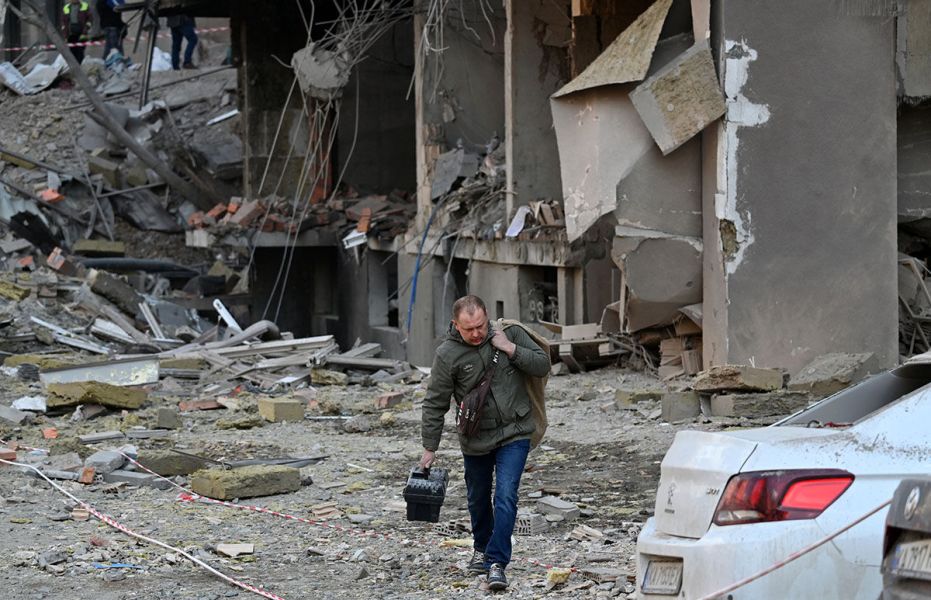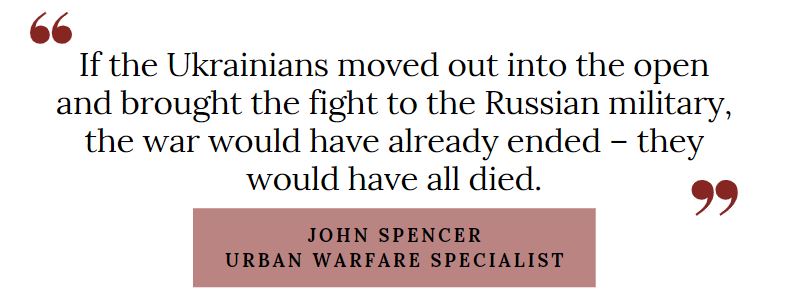By building bases and using weapons systems in densely populated residential areas, including schools and hospitals, Ukrainian troops are endangering civilians while defending their country against Russia's invasion, Amnesty International stated in a much-criticised report.
By setting up military bases in residential areas, the Ukrainian troops are violating international humanitarian law and endangering the civilian population by turning civilian objects into military targets; the ensuing Russian strikes have killed civilians and destroyed civilian infrastructure.
"We have documented a pattern of Ukrainian troops endangering civilians and violating the law of war when operating in populated areas," Agnès Callamard, Secretary-General of Amnesty International, said in a press release.
"The fact that the country has to defend itself does not absolve the Ukrainian military of its obligations under international humanitarian law," she added.
In certain other areas, in which Amnesty International concluded that Russia had committed war crimes, such as in some areas of the city of Kharkiv, the organisation did not find evidence of Ukrainian forces located in the civilian areas that were unlawfully targeted by the Russian military.
Satellite images
Between April and July 2022, Amnesty researchers spent several weeks inspecting Russian attacks in the Kharkiv, Donbas and Mykolaiv regions, where it inspected the attack sites, interviewed survivors, witnesses and relatives of attack victims, and conducted remote sensing and weapons analysis.
Throughout these investigations, evidence was found of Ukrainian troops launching (counter) strikes from inhabited residential areas and setting up military bases in civilian buildings in 19 cities and villages, instead of what Amnesty called "viable alternatives" such as military bases or densely wooded areas nearby, or other structures further away from residential areas.
However, specialist in urban warfare studies John Spencer also told the New York Times that these suggested "alternative" are not realistic for Ukrainian forces. "To say, ‘Don’t be in the urban areas’ does not make sense. The Russians are advancing to take cities. Ukrainians have to go into defence in the cities to stop that from happening."
"If the Ukrainians moved out into the open and brought the fight to the Russian military, the war would have already ended – they would have all died," Spencer said.
He added: “If the Ukrainians moved out into the open and brought the fight to the Russian military, the war would have already ended — they would have all died.”
— John Spencer (@SpencerGuard) August 4, 2022
According to the Amnesty International report, survivors and witnesses of Russian strikes in the Donbas, Kharkiv and Mykolaiv regions told the organisation's researchers that the Ukrainian military had been operating near their homes around the time of the strikes, exposing the areas to retaliatory fire from Russian forces.
International humanitarian law requires all parties to a conflict to avoid locating, to the maximum extent possible, military objectives within or near densely populated areas.
"The Ukrainian government must immediately ensure that it places its troops away from populated areas, or it must evacuate civilians from areas where the army is active," said Callamard. "Armies should never use hospitals to wage war and should only use schools or homes as a last resort if there are no viable alternatives."
Related News
- Zelenskyy orders civilian evacuation of Donbas region
- Sexual violence as a weapon of war in Ukraine cannot go unpunished, says De Croo
- Ukraine: Council of Europe denounces 'staggering' human rights violations
In recent months, Amnesty also documented many Russian attacks that were carried out with inherently indiscriminate weapons, including internationally banned cluster munitions, or with other explosive weapons with wide area effects.
The organisation stressed that the Ukrainian military’s practice of locating military objectives within populated areas does not, in any way, justify these indiscriminate Russian attacks.
"All parties to a conflict must at all times distinguish between military objectives and civilian objects and take all feasible precautions, including in the choice of weapons, to minimise civilian harm," said Amnesty. "Indiscriminate attacks which kill or injure civilians or damage civilian objects are war crimes."
In the meantime, experts have denounced Amnesty's report, saying that accusing Ukrainian armed forces of putting civilians at risk while they are, in fact, defending them from the Russian invaders is a "grave accusation" that Russian media will undoubtedly pick up.
"Ukrainians are defending themselves, Russia is deliberately attacking Ukrainian civilians and levelling cities. The scale of alleged violations is just incomparable," said Ukraine expert Olga Tokariuk. "Equating two sides at the time when interest and support to Ukraine are fading is morally questionable at minimum."
'Ukrainian office not consulted'
The head of Amnesty International Ukraine, Oksana Pokalchuk, also took to social media to criticise Amnesty's publication, saying that the data used did not come from Amnesty Ukraine, but from international researchers.
"The Ukrainian office was not involved in the preparation or writing of the text of the publication," she said in a long Facebook post. "And, unfortunately, at the initial stage of this report, we already entered a dead end where our team's arguments about the inadmissibility and incomplete of such material were not taken into account."
The Ukraine office "has done anything possible to prevent this publication," but "multiple objections were answered with a firm no," added Pokalchuk. "We are very sad by the fact that after all possible arguments from our side against this report, we have not been heard."


